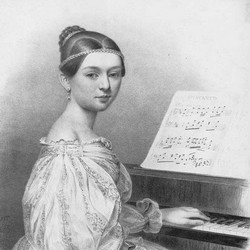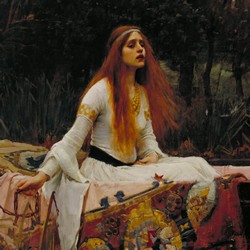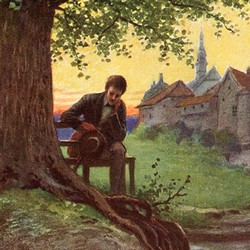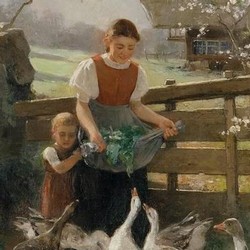- Details

For a human being, accepting a tragedy such as the death of the beloved ones is an extremely difficult task. This was the situation which devastated the young writer Elisabeth Kulmann (1808-1825) when, as a child, she lost her father and her six brothers in the war, as a result she only had her mother’s support to face pain and misery, the situation being worsened by the dire poverty in which they lived. Far from sinking into despair, mother and daughter were able to cope with adversity and Elizabeth had a [...]
- Details

Today I want to share with you a beautiful Lied composed by a wonderful woman, Clara Schumann. Clara Schumann was born in a time when the status of the woman was still associated to a life dedicated to the home, letting to the men the occupations outside of home. Although of that, her life was very opposite to the one she was supposed to have: since a very early age, her father, a outstanding piano teacher, gave her a wide musical education, and she evolved in a great concert pianist career which brought her to the most famous international music stages and gave her lots of fame.
- Details

It is the last song of the Mädchenblumen cycle (0p. 22), composed by Richard Strauss (1864-1949 and published in 1988. Based on the poem by Felix Dahn, it is a significant sample of the importance of the female figure within the romantic myth. The cycle talks about for types of flowers: Kornblumen (cornflowers), Mohnblumen (poppies), Epheu (Ivy) and Mädchenblumen (water lily).
- Details

We are already in summer, it begins that hotness we all know, and we avoid being exposed to burning sunbeams. What could be better than a fresh shadow, surrounded by the nature, with a sounding fountain, under a green and leafy tree like the linden: “Der Lindenbaum”. Starting this popular poem from Wilhelm Müller we meet our main character, a person who tell us how he lived and enjoyed this relaxing and peaceful scenery; the linden, a place for lovers, tree that for Müller has a close relationship with society and love, which contrasts with the loneliness that this poem exposes. [...]
- Details

Recently I have read a book by Norman Lebrecht titled “¿Why Mahler? How One Man and Ten Symphonies changed our world”. The author explains that Gustav Mahler’s music is received by many as a source of spiritual revelation. Likewise, on the webpage “Mahlerlist” we can read the testimonies of people telling how Mahler’s music has been significant and therapeutic throughout their life.













